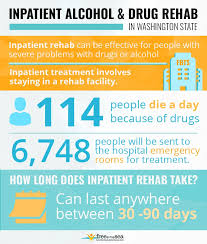The 12-Step Program: A Path to Recovery and Personal Growth
For individuals struggling with addiction, the 12-step program has been a beacon of hope and a roadmap to recovery for decades. Originally developed by Alcoholics Anonymous (AA), the 12-step program is now utilized by various support groups and treatment centers worldwide to help individuals overcome substance abuse and other addictive behaviors.
The core principles of the 12-step program are rooted in spirituality, self-awareness, acceptance, and personal responsibility. Participants are encouraged to acknowledge their powerlessness over their addiction, seek support from a higher power or a group of peers, take moral inventory of themselves, make amends for past wrongs, and commit to ongoing personal growth and service to others.
One of the key strengths of the 12-step program is its emphasis on community and fellowship. By attending regular meetings and connecting with others who share similar struggles, individuals in recovery find a sense of belonging, understanding, and support that is crucial for long-term sobriety.
Each of the 12 steps serves as a guidepost for personal reflection and growth. From admitting one’s faults to making direct amends to those harmed by addiction, each step offers an opportunity for self-discovery, healing, and transformation.
While the 12-step program is widely used in addiction recovery settings, its principles can also be applied to various areas of life where personal growth and change are desired. Whether facing challenges related to relationships, work, or mental health issues, the principles of honesty, humility, willingness to change, and service to others can be powerful tools for transformation.
Ultimately, the 12-step program offers a path to not just overcoming addiction but also cultivating a deeper sense of purpose, connection, and fulfillment in life. By embracing its principles and committing to ongoing self-improvement, individuals can embark on a journey of healing and growth that extends far beyond sobriety.
If you or someone you know is struggling with addiction or seeking personal growth opportunities, exploring the principles of the 12-step program may provide valuable insights and support on the path toward recovery and transformation.
Understanding the 12-Step Program: Key Questions and Answers
- What is a famous 12-step program?
- What are the 12 Steps of recovery in order?
- What are the basic concepts of the 12-step program?
- What are the 12 principles of recovery?
What is a famous 12-step program?
One of the most well-known and widely recognized 12-step programs is Alcoholics Anonymous (AA). Founded in 1935, AA has helped countless individuals worldwide overcome alcohol addiction through its structured approach to recovery based on spiritual principles, self-awareness, and mutual support. The success of AA has inspired the development of numerous other 12-step programs focused on various addictions and behavioral challenges, making the 12-step model a cornerstone of modern addiction treatment and personal growth initiatives.
What are the 12 Steps of recovery in order?
The 12 Steps of recovery, as outlined in the 12-step program, are a structured set of principles designed to guide individuals through the process of overcoming addiction and achieving personal growth. While the specific wording may vary slightly depending on the organization or support group, the general order of the steps remains consistent. These steps include admitting powerlessness over addiction, seeking support from a higher power or group, taking moral inventory, making amends, and committing to ongoing self-improvement and service to others. By following these steps in order, individuals can navigate their journey toward recovery with guidance, reflection, and community support.
What are the basic concepts of the 12-step program?
The basic concepts of the 12-step program revolve around acknowledging powerlessness over addiction, seeking support from a higher power or a community of peers, taking personal inventory, making amends for past wrongs, and committing to ongoing personal growth and service to others. These steps are designed to guide individuals through a process of self-reflection, acceptance, and transformation, emphasizing the importance of humility, honesty, accountability, and spiritual connection in the journey toward recovery and personal growth. By embracing these core concepts and actively engaging with the principles of the 12-step program, individuals can navigate their path to sobriety with a sense of purpose, support, and hope for a brighter future.
What are the 12 principles of recovery?
The 12 principles of recovery in the context of the 12-step program encompass key values and beliefs that guide individuals on their journey to sobriety and personal growth. These principles include acceptance, surrender, honesty, humility, willingness, faith, self-examination, making amends, making direct contact with a higher power or support group, perseverance, spiritual awakening, and service to others. Each principle plays a crucial role in helping individuals navigate the challenges of addiction recovery, cultivate self-awareness and resilience, and ultimately embrace a life of sobriety and fulfillment.


